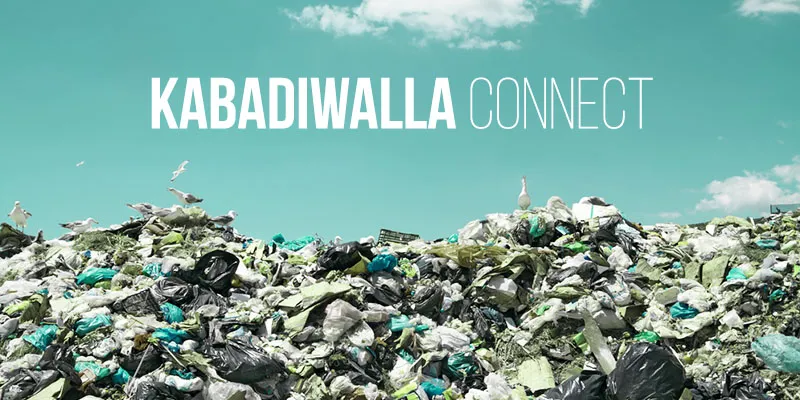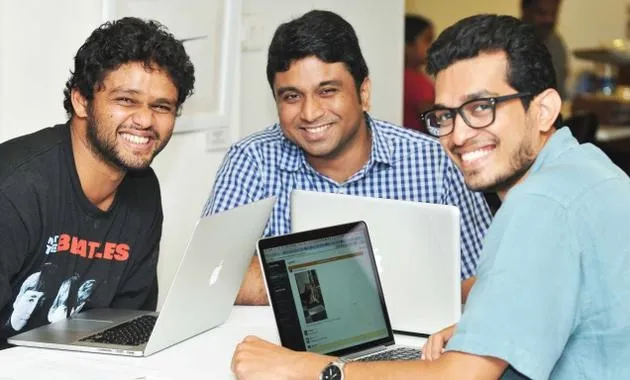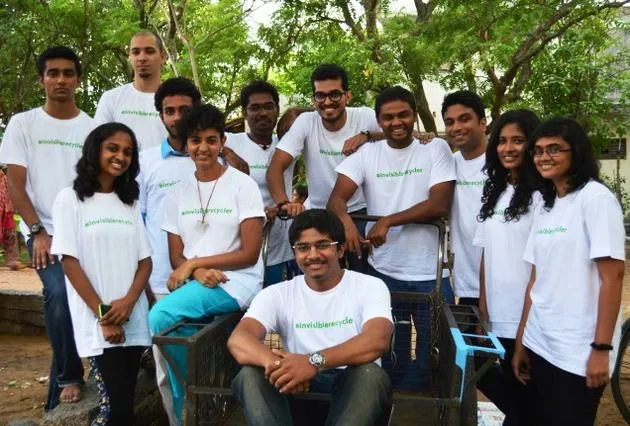Kabadiwalla Connect: Bringing efficiencies into waste segregation, recycling
Environmental issues arising from mismanagement of waste is a big concern for the government as well as citizens. Landfill sites are filled with an assortment of waste that has not been properly collected, segregated and sorted. The presence of plastic waste which is not biodegradable makes the task even more overwhelming. It lies around for decades, impacts the degradation of other waste materials, and makes the reclamation of landfills in the relatively near future, almost impossible.
To curb waste, and determine the quality of waste going into the landfill, some Chennai based entrepreneurs have come up with a venture called Kabadiwalla Connect (KWC). It is primarily an online information service which aims to leverage the circuits of the existing informal waste ecosystem, and get communities living in Indian cities to send less, better sorted, waste to the landfill.

“We have just launched this service in Chennai which currently covers Zone 13: this essentially comprises the areas of Adyar, Guindy, Velachery and Adambakkam. We are in the process of mapping out the other zones,” says, Siddharth Hande, CEO and Co-founder, Kabadiwala Connect.
How KWC is a win-win proposition for all?
Kabadiwalla Connect works with city residents and commercial establishments to provide them with solutions for waste segregation. They also help them sell the recyclable waste materials (like paper, metal scrap, glass, plastic, etc.) to the local kabadiwallas, who in turn sell it to be upcycled, or recycled for a profit.
“This will not only ensure that less waste is sent to the landfills, but also increase the revenue of the local kabadiwallas. Finally, we work with designers who use waste material sourced from kabadiwalla shops, to make upcycled products that can be sold through our platform,” adds Siddharth.
Related read: 2 Indians quit high-paying jobs in the US to tackle India’s mounting garbage crisis
Grant from the World Economic Forum was a great bolster for KWC
Kabadiwalla Connect started off as a series of mapping sessions in Chennai and Bangalore. The company worked with volunteers in both cities to go out and map Kabadiwalla networks. Last year, it won a climate change grant from the World Economic Forum, hired some full-time employees and interns, and started collecting data in a more organized manner.
“Since then, we have developed a robust survey, and have trained a team of interns to conduct one-on-one interviews with kabadiwallas in the city. We have completed mapping 3 zones of Chennai, and plan to complete the rest of the city in the coming weeks,” adds Siddharth.
Core Team and the Road Ahead
Besides Siddharth, who founded the organization and heads research, Sonaal Bangera and Rohit Koliyot are other partners in the venture. Sonaal leads product and design while Rohit looks after business and strategy.

Kabadiwalla Connect is working with designers to explore different ways in which post-consumer waste can be upcycled. “We are currently in the process of prototyping products made of material sourced from kabadiwallas,” says Sonaal.
The company aims at legitimizing the informal waste ecosystem that exists in the cities of the developing world, and provokes thought leadership in urban waste management.
Going forward, the company will explore ways, through technology, to send more recyclable and upcyclable material into these local scrap-dealer networks, and track how much material is being recycled at the neighbourhood level.

“Our goal is to identify how this informal waste ecosystem can connect to the more formal ways cities handle their waste,” concludes Sonaal.
In the future, Kabadiwalla Connect will compete with Banyan which is rooting out inefficiencies in the recycling value chain by innovating across all aspects of the recycling process – from pre-sorting and collection to post-sorting and processing of recyclates.
Besides Kabadiwalla Connect, Paperman, is another startup which channelizes the entire process of recycling through an online platform.







